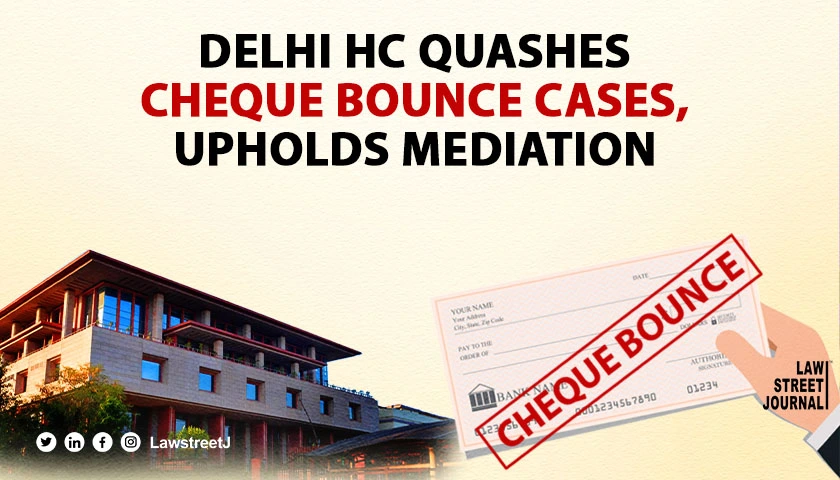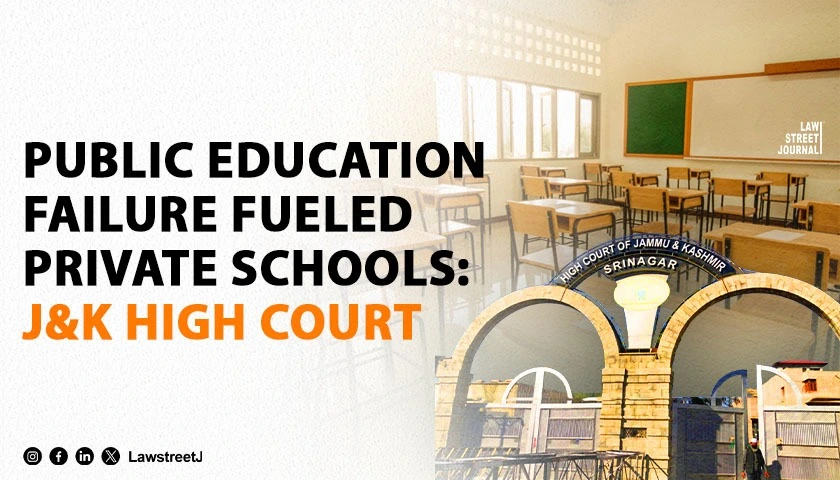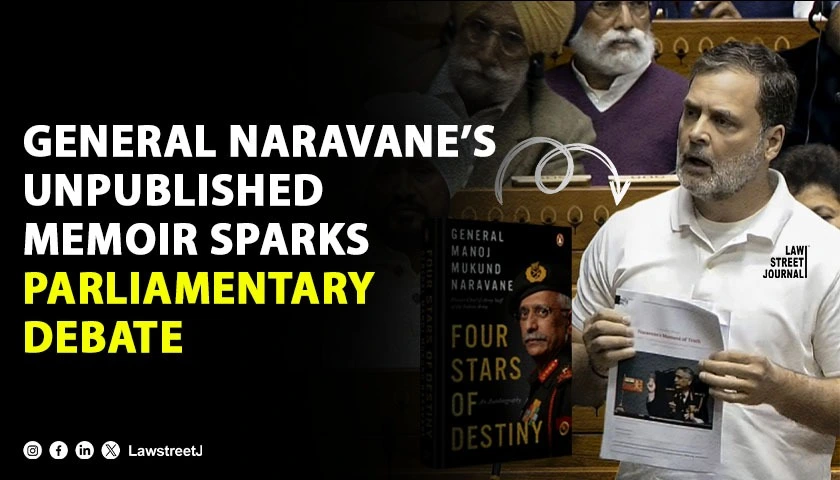New Delhi: The Delhi High Court has delivered a significant order quashing two criminal complaints filed under the Negotiable Instruments Act, highlighting the importance of honoring settlements reached through mediation and preventing abuse of the judicial process.
Justice Amit Mahajan set aside the order of the trial court that had directed the trial to proceed on merits despite a mediation settlement between the parties.
"Once it is an admitted position that an agreement was signed by the parties and the payment in terms of the settlement has already been paid by the petitioner, Respondent No. 2 cannot be allowed to wriggle away by taking such arguments," the Court observed.
The court noted that the complainant had received Rs. 30,00,000 as per the settlement agreement but was still trying to continue with the criminal proceedings. It emphasized that discarding settlements on technical grounds would discourage parties from entering into settlement agreements in the future.
"Such tendency ought not to be encouraged," the court observed regarding the conduct of the litigants.
The court exercised its powers under Section 482 of the Code of Criminal Procedure to quash the criminal complaints, stating that the continuation of proceedings would be an abuse of the process of the court.
Highlighting the importance of mediation settlements, the court stated: "If the settlements are discarded and rejected on such grounds, the parties would be wary of entering into any settlement agreement and making payments thereof."
Additionally, the court referred to the Supreme Court's judgment in Krishna Lal Chawla v. State of U.P., emphasizing the court's inherent powers to prevent abuse of its processes and deny relief to litigants with unclean hands.
Addressing the argument about the non-recording of the settlement before the court, it also observed that "The argument that the settlement agreement was not placed before the Court and the statement was not made before the Court so as to make the agreement binding between the parties is nothing but a mala fide attempt on the part of Respondent No. 2 to wriggle away from the liabilities after having accepted the consideration."
In conclusion, the court allowed the petitions, quashed the criminal complaints, and directed the complainant to pay Rs. 50,000 as costs to the petitioner within four weeks. It also observed that the conduct of the litigants to keep the dispute alive for mala fide reasons tends to keep the docket of the Court heavy, to the detriment of other litigants whose cases have been pending for years.



![Delhi High Court Sets Aside Arbitral Tribunal's Award Against NHAI in Highway Project Delay Case [Read Judgment]](/secure/uploads/2023/07/lj_9605_23374c2e-392c-4491-a2fe-f2f12fc5272f.jpg)
![Delhi Court Rejects Stay Request in Defamation Case Against Rajasthan CM Ashok Gehlot [Read Order]](/secure/uploads/2023/08/lj_5208_80de1ddc-d76a-4f7f-b180-408e3ae14fb4.jpg)







